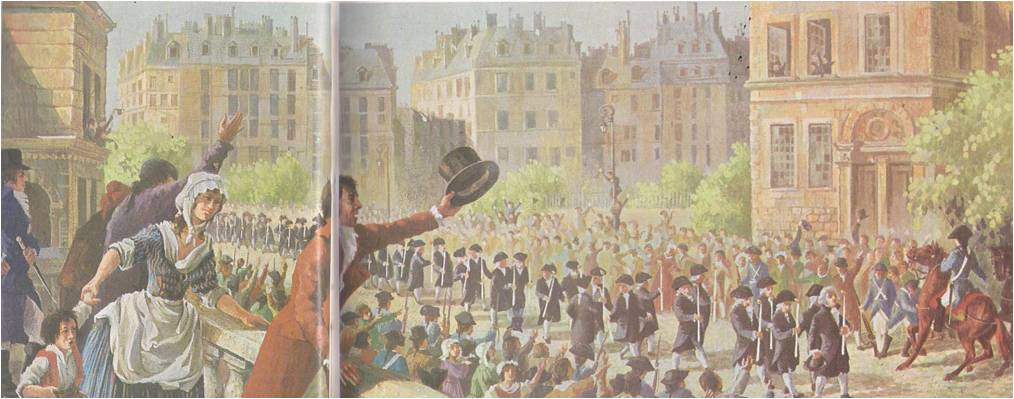The civilizations of India, China and the Moslem world progressed to about the year 1500 A.D., but what had been happening in western Europe in the centuries after Roman power began to decline and barbarian tribesmen had overrun the lands once part of the proud Roman Empire? What had taken the place of Roman might, government and law in western Europe? As Rome’s rule faded away, western Europe entered a period known as the Middle Ages or the medieval period. For a long time there was neither a single empire nor nations as we know them to day. Central governments, …
Read More »Tag Archives: tithe
The Voice of the People 1789
The sun had broken through the clouds after a night of spring showers. Dripping leaves sparkled in the golden light, which flooded the gaily decorated streets of Versailles and the broad terraces of the king’s royal palace. It was May 4, 1789, the day of the opening ceremony of the recently elected Estates General. The streets were crowded with visitors, most of them from Paris, only a few miles away. They had come to see the grand procession of the Estates General and were in a holiday mood. The shops were closed. Local citizens watched from windows, crowded balconies and …
Read More »
